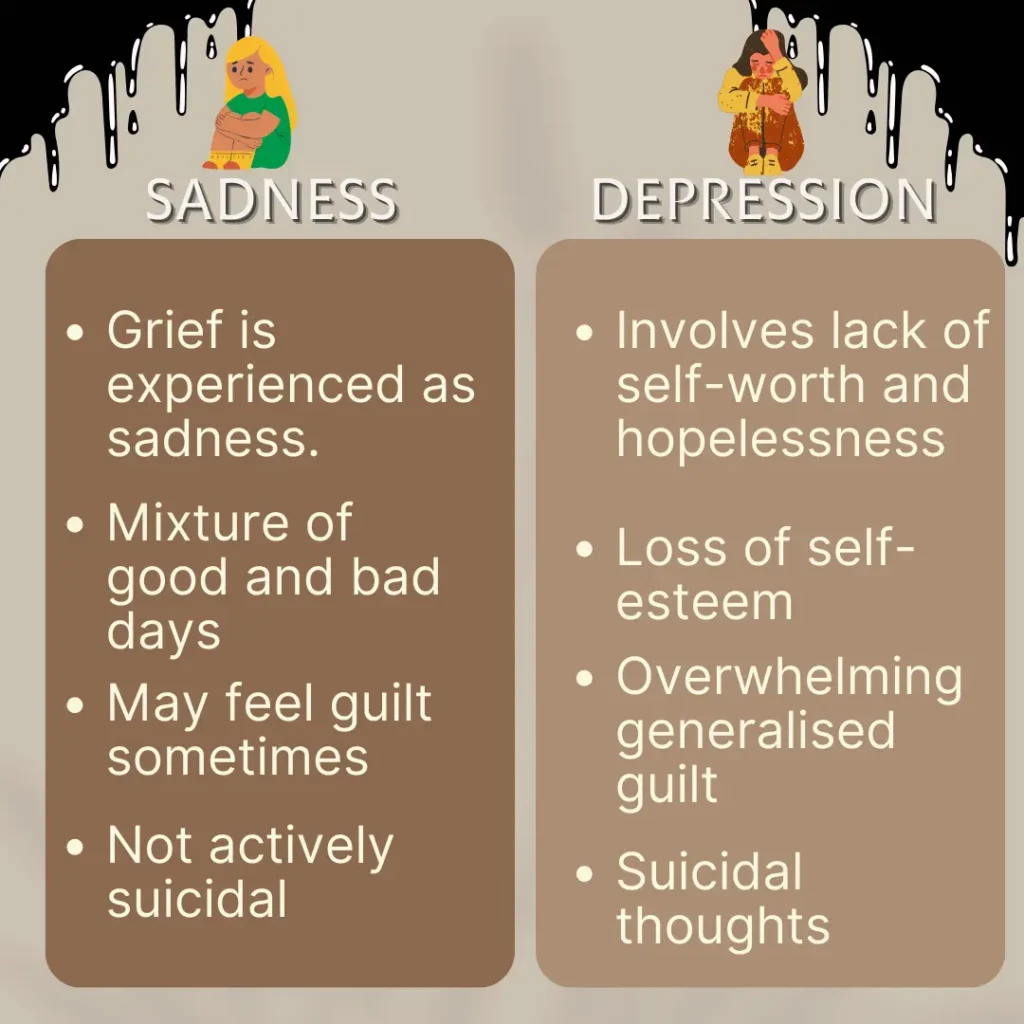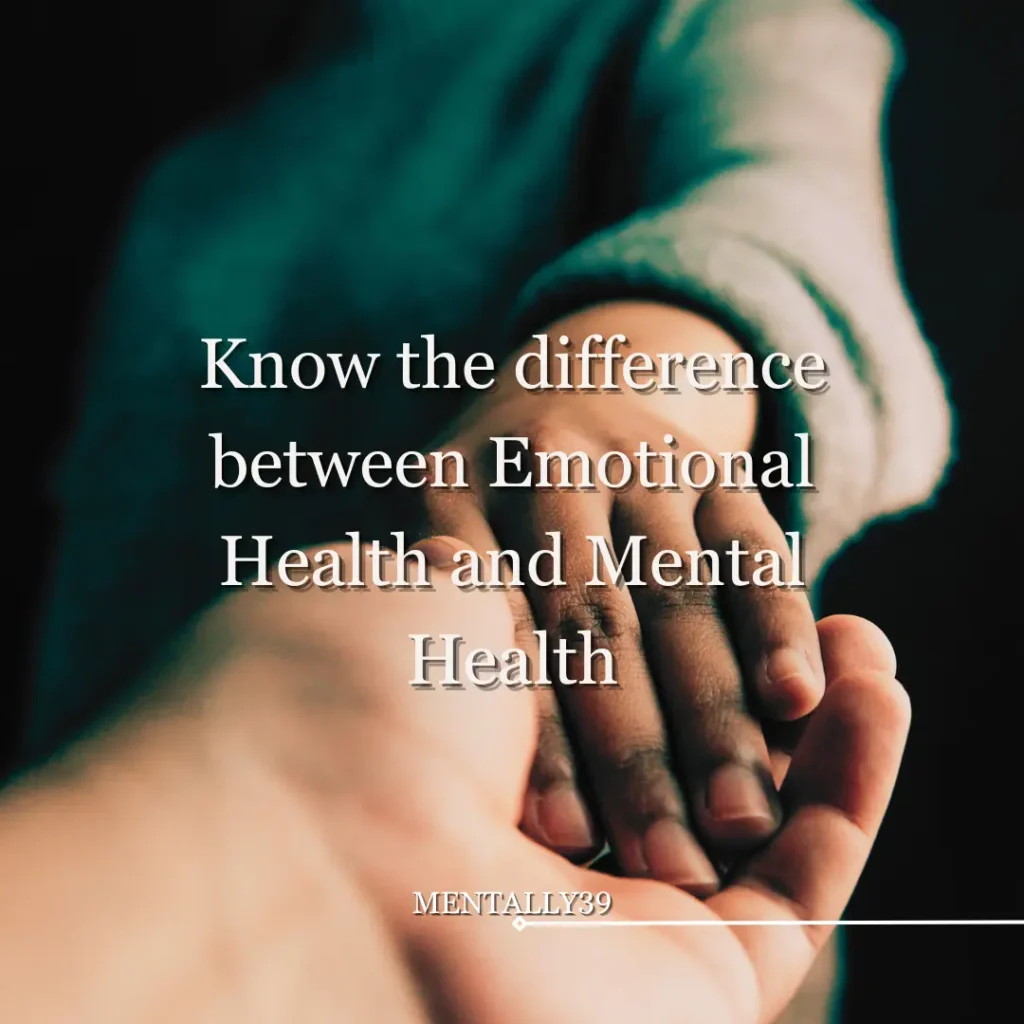It’s important to understand the differences between emotional health and mental health. Although these two words are often used interchangeably, they describe different aspects of our feelings.
Emotional health involves our emotional state and how we manage our emotions. It encompasses how we feel about ourselves, our attitudes, and our ability to regulate our emotions.
External factors such as stress and trauma, as well as internal factors like our mindset and overall health, can significantly impact our emotional health. It is closely connected to our physical well-being, as positive emotional wellness helps us manage stress and maintain overall happiness.
On the other hand, mental health focuses on our cognitive functioning and psychological disorders. It relates to how we think and feel about ourselves and includes issues such as anxiety disorders and autism spectrum disorder. Mental health often requires professional assessment and intervention. It’s important to note that while emotional health is subjective and based on how we feel, mental health may require a more objective evaluation.
Although emotional and mental health are different, they are connected. When we feel good emotionally, it can help us manage mental health issues and make us less stressed. However, mental health problems can also affect our emotional well-being. So, taking care of both is important. By doing so, we can feel better emotionally, have better control over our feelings, and be more motivated to take care of ourselves.
Key Takeaways:
- Emotional health refers to an individual’s emotional condition and how they manage their emotions.
- Mental health focuses on cognitive functioning and psychological disorders.
- Emotional and mental health are interconnected and influence each other’s well-being.
- Positive emotional health helps manage stress, while good mental health ensures cognitive function.
- Both require attention, support, and professional help when necessary.
The Difference Between Emotional Health and Mental Health
Emotional health and mental health are two distinct but interconnected aspects of overall well-being. While they impact an individual’s psychological state, there are notable differences between them.
Emotional health refers to an individual’s emotional condition, which is influenced by various factors such as life experiences and environment. It encompasses how one feels, one’s emotional triggers, and one’s ability to regulate one’s emotions effectively. Good emotional health is often associated with positive feelings of happiness, satisfaction, and well-being in life.
Mental health focuses more on cognitive functioning and psychological disorders. It includes conditions such as depression, anxiety disorders, and bipolar disorder. Mental health problems require the assessment and intervention of mental health professionals, as they often require specialized treatment and management.
It’s important to note that a person can have good emotional health without necessarily having good mental health, and vice versa. External factors and life experiences can influence emotional health, while mental health conditions often require professional diagnosis and treatment.
It is important to prioritize emotional, mental, and physical health by having a support system in place. This can involve connecting with trustworthy people, seeking assistance from mental health experts, or attending counseling sessions. Engaging in healthy habits like meditation and mindfulness can also be helpful.
| Emotional Health | Mental Health |
|---|---|
| Influenced by life experience and environment | Often requires professional assessment and intervention |
| Focuses on an individual’s emotional state | Focuses on cognitive functioning and psychological disorders |
| Associated with feelings of happiness and satisfaction | Includes conditions such as depression and anxiety disorders |
| This can be improved through emotional regulation | Requires specialized treatment and management |
The Connection Between Emotional and Mental Health
Emotional and mental health are closely linked, with each influencing the other in profound ways. When individuals experience emotional distress or face mental health challenges, it can affect their overall mental and emotional well-being. Similarly, addressing emotional health issues can have a positive impact on mental health treatment and overall mental wellness.
Recognizing symptoms of mental and emotional triggers is important in understanding the connection between emotional and cognitive needs. Emotional wellness also plays a significant role in the management of mental health disorders. It provides individuals with the tools and coping mechanisms necessary for navigating through their mental health challenges.
Addressing mental wellness can improve emotional fitness, increase self-esteem, and enhance overall mental well-being. This comprehensive approach to mental and emotional health allows individuals to cultivate resilience and better manage the symptoms of mental health disorders.
| Emotional Health Issues | Mental Health Treatment | Emotional and Mental Needs |
|---|---|---|
| Stress and trauma | Therapy | Emotional control |
| Anxiety and depression | Medication | Self-esteem |
| Grief and loss | Support groups | Motivation |

Improve your Emotional and Mental Health
Improving your mental health involves several different strategies; here are a few that can help.
1. Practice self-care: Engage in activities that promote physical, emotional, and mental well-being, such as exercise, healthy eating, sufficient sleep, and relaxation techniques.
2. Develop a support system: Cultivate relationships with friends, family, or a therapist who can provide a listening ear, support, and encouragement.
3. Manage stress: Learn stress management techniques such as deep breathing, meditation, progressive muscle relaxation, or engaging in hobbies to help cope with life’s challenges.
4. Set realistic goals: Establish achievable goals and break them down into smaller, manageable steps to build confidence and a sense of accomplishment.
5. Practice gratitude: Regularly acknowledge the good things in your life to maintain a positive perspective and improve your overall mood.
6. Challenge negative thoughts: Identify and challenge negative self-talk and cognitive distortions, replacing them with more balanced, realistic thoughts.
7. Seek professional help: If you’re experiencing persistent or severe emotional or mental health issues, don’t hesitate to seek help from a mental health professional, such as a therapist or counselor.
8. Engage in mindfulness: Practice being present in the moment and observing your thoughts and feelings without judgment, which can help reduce anxiety and improve emotional regulation.
9. Maintain a work-life balance: Set clear boundaries between work and personal life to avoid burnout and ensure you have time for self-care and relaxation.
10. Continuously learn and grow: Engage in activities that promote personal growth, such as reading, learning new skills, or pursuing new experiences, which can boost self-esteem and provide a sense of purpose.
Remember, improving emotive and cognitive health is an ongoing process. Be patient with yourself and celebrate small victories along the way.
Review of Emotional Health and Mental Health
Mental and emotional health are important for our well-being. Emotional health means managing our emotions well. Mental health is how our brain works and whether we have psychological disorders. We might need to see a professional, look after ourselves, and have good relationships to have emotional stability.
The two are connected. Taking care of our emotions can help us deal with mental health problems and reduce stress. We must look after our feelings and thoughts to be happier.
Taking care of our emotions is important for living a good life. By understanding emotional health, we can build a society that values emotional growth, resilience, and stability.
Source Links
- https://mindfulhealthsolutions.com/difference-between-mental-and-emotional-health/
- https://www.webmdhealthservices.com/blog/the-difference-between-mental-and-emotional-health-what-your-organization-can-do-to-support-both/
- https://freebythesea.com/emotional-health-vs-mental-health/
20+ Years as a Special Education Teacher
NASM Certified Nutrition Coach,
Certified Trauma Informed Trainer
Mindset and Motivation Master Life Coach
